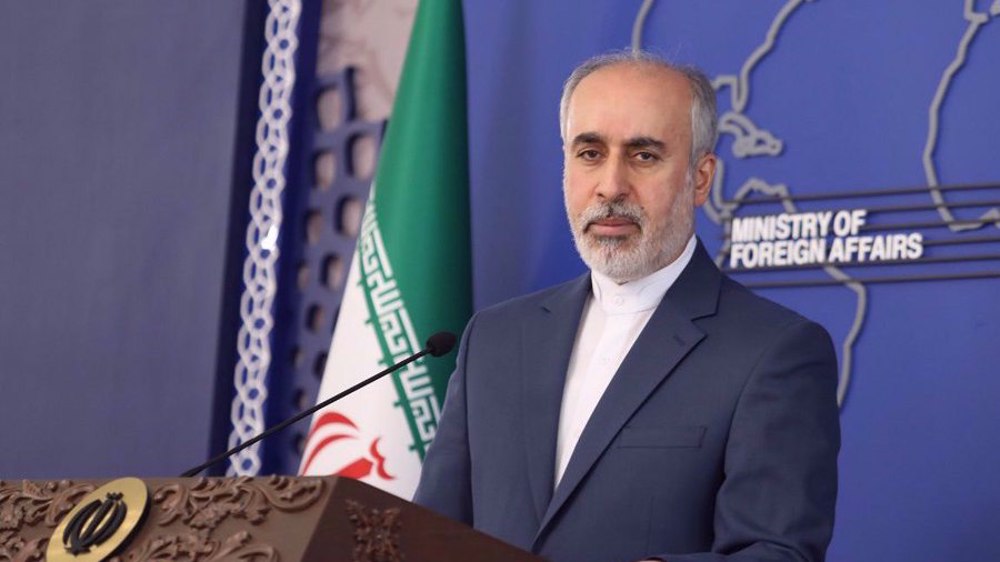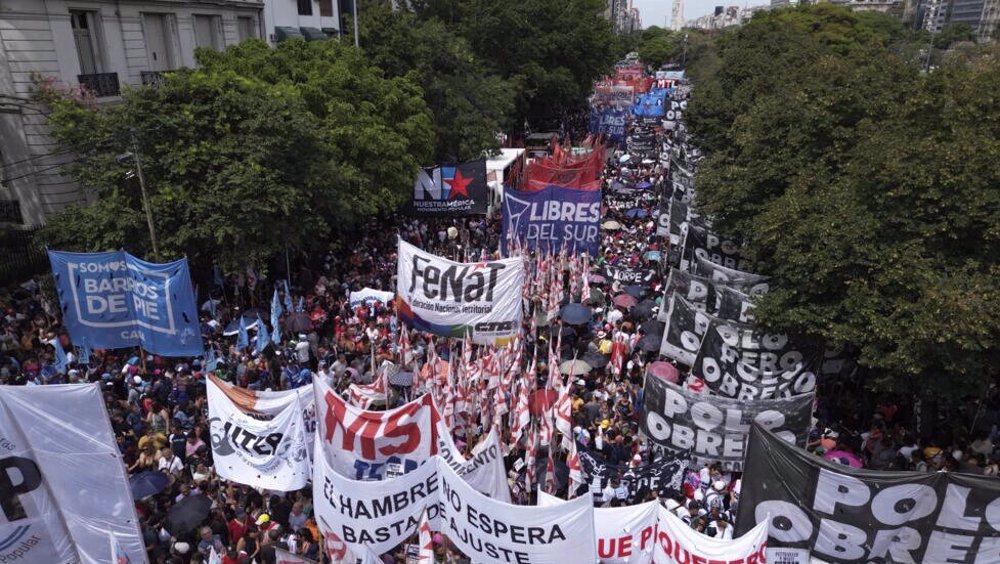Polls open as Argentina votes in presidential election
Voting got underway Sunday in Argentina's presidential election after a campaign dominated by the economy with center-left Peronist candidate Alberto Fernandez favored to oust market-friendly President Mauricio Macri.
Opinion polls point to a crushing victory for the 60-year-old Fernandez, whose running mate is ex-president Cristina Kirchner.
Some put his lead at almost 20 points, which would be enough to win the presidency outright in the first round.
The polls opened at 8:00 am (1100 GMT), with results expected at about 9:00 pm -- three hours after voting ends.
"I'm looking forward to Monday, Fernandez and Cristina are coming back," said Sergio Esteves, a flower-seller in central Buenos Aires.
The likely return to power of protectionist Peronists comes amid a lengthy recession and a debt crunch, raising market fears of a possible default on a $57 billion IMF loan.

The peso fell 5.86 percent in the week before the elections, and the week ended with the dollar at 65 pesos.
Fernandez has insisted his government would not default, but rather seek to renegotiate the terms of the loan, and sought to reassure voters that their bank deposits would be safe under his administration.
Stashing the cash
Martin, a 50-year-old filmmaker, said Friday he did not believe Fernandez.
He was carrying a suitcase full of cash and intended to buy $3,000 at a busy foreign currency exchange in Buenos Aires.
"It's the same old story. My parents lost everything in the Corralito. I don't want it to happen to me," he said, referring to the 2001 default crisis when people were blocked from withdrawing their money.

Since Fernandez's crushing victory in August primaries, which made him the favorite for the presidency, Argentine savers have withdrawn around $12 billion from their accounts.
Whoever wins must reach a consensus to navigate a polarized Argentina out of the crisis.
"This isn't so much a Fernandez win as a Macri loss. It's a vote of repudiation, and in a vote of repudiation people seem to have little patience (with the resulting government)," said Monica de Bolle of the Peterson Institute for International Economics.
"My take is that what we will see is a period where a lot of questions are going to be asked and we're going to see how politically able Fernandez is going to be to handle those questions," she told AFP.
Beyond showing his determination to bring about change, Fernandez has given scant details of how he intends to do so.
In primaries held in August, Fernandez garnered 49.5 percent of the vote compared to only 33 percent for Macri, whose nearly four years in power have been marked by economic woes.
Macri blamed Argentina's economic problems on previous Peronist governments under Kirchner (2007-15) and her late husband Nestor Kirchner (2003-07).
Safe hands
The center-right president, 60, has presented himself as a safe pair of hands and campaigned to be given the chance to follow through on his policies.
His supporters have warned of surprises pointing out there were no polls published since a massive rally in central Buenos Aires last weekend.

"Mauricio Macri was far from perfect, but he had all the good intentions and the last thing we want is to return to the past, 12 years of Kirchnerism did not help, we are a failed country," said Tomas Villar, 23, a political science student.
Macri's popularity has fallen off sharply over the last year in which Argentina has been in recession.
The poverty rate has risen to more than 35 percent, inflation for the year to September was at almost 38 percent, while the peso has depreciated 70 percent since January 2018.
That, and the austerity measures Macri subsequently was forced to announce, proved highly unpopular in a country where the spending power of many ordinary Argentines has dropped dramatically.
Under Argentine law a candidate can win the presidency in the first round if he reaches 45 percent of the vote, and a 10 point margin over his nearest rival.
Otherwise a second round will be held on November 24.
No 'major change'
"Polls have been notoriously unreliable, but the ones published have not shown any major change in voter preferences since the primaries, which makes analytic sense," said Martin Kerner of analysts Eurasia.
"There is no evidence that Macri has really been able to create a widespread fear of a return of Kirchnerism."
Sunday's election is essentially a two-way battle, with the rest of the candidates, led by former finance minister Roberto Lavagna, not expected to poll more than a combined 15 percent.
Voters will also elect half of the Chamber of Deputies, a third of the Senate, the governor of Buenos Aires province and the capital's mayor.
(Source: AFP)
UNRWA unraveled amid Israel's allegations, reduced intl. support
Palestinian journalist, a Sobh Media Festival awardee, killed in Gaza hours before truce
Jan. 15: ‘Axis of Resistance’ operations against Israeli occupation
VIDEO | US fires: Criticism mounts over govt. failure to respond
VIDEO | Fears, hope in Gaza amid intensified ceasefire efforts
VIDEO | Press TV's news headlines
Hamas: Ceasefire agreement result of steadfastness, resistance in Gaza over 15 months
Hamas thanks Iran, Resistance Front following achievement of ceasefire in Gaza















 This makes it easy to access the Press TV website
This makes it easy to access the Press TV website